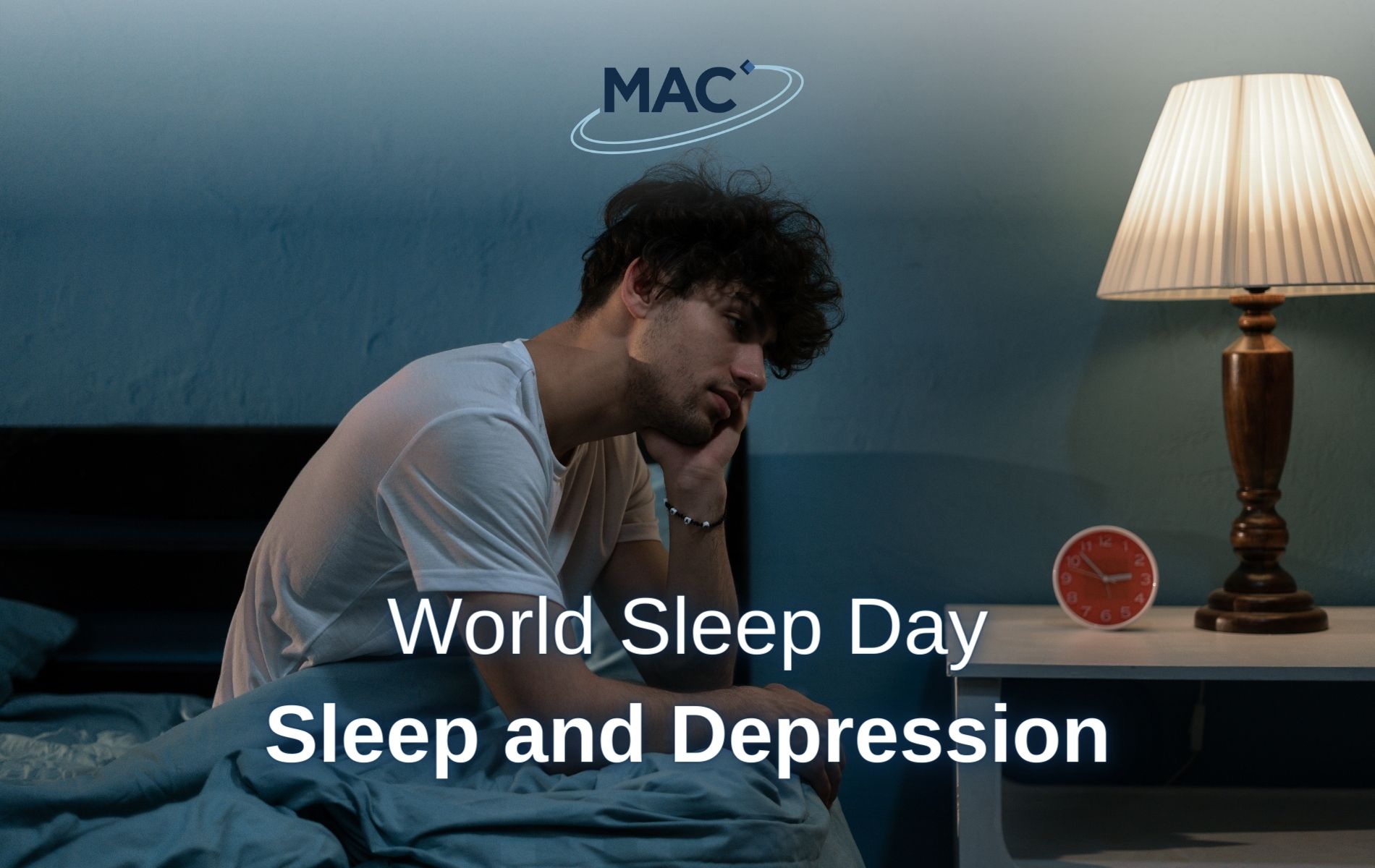There is a distinct relationship between sleep and mental wellbeing. The quality and quantity of sleep has a profound influence on our emotional equilibrium, particularly concerning depression. For this year’s World Sleep Day, we’ll explore the links between sleep and depression.
What is depression?
Depression is a mental health disorder. Symptoms include feeling unhappy for long periods of time, feelings of hopelessness, and finding no pleasure in hobbies and interests (anhedonia). Around 1 in 6 adults in the UK stated they have experienced moderate to severe depressive symptoms1.
How are depression and sleep linked?
The connection between depression and sleep is not merely coincidental but deeply rooted in neurobiological mechanisms. Sleep disturbances, whether in the form of insomnia (the inability to fall asleep) or hypersomnia (excessive sleepiness), often precede or accompany episodes of depression. This relationship forms a vicious cycle, where poor sleep exacerbates depressive symptoms, and conversely, depression disrupts sleep patterns.
Approximately 40% of people with insomnia have clinical depression, and up to 80% of patients with depression experience periods of insomnia2.
At the heart of this relationship lies the delicate balance of neurotransmitters and hormones orchestrating our sleep-wake cycle and regulating mood. Serotonin, a neurotransmitter associated with feelings of wellbeing and happiness, plays a pivotal role in both sleep regulation and depression. Disruptions in serotonin levels can lead to sleep disturbances and contribute to the development of depressive symptoms.
Furthermore, the intricate dance between cortisol, the stress hormone, and melatonin, the sleep hormone, further complicates the relationship. Around 43% of adults report that stress has caused them to lie awake at night3. Elevated cortisol levels, often observed in individuals experiencing chronic stress or depression, leads to fragmented sleep and fails to provide the benefits of restorative sleep thus perpetuating the cycle of depression.
The impact of sleep on cognitive functioning and emotional regulation cannot be overstated. Sleep deprivation impairs cognitive processes such as attention, memory, and decision-making, making it challenging to cope with stressors and regulate emotions effectively. Cognitive impairment is also a side effect of depression thus exacerbating these symptoms further; According to research, 85–94% of people with depression experienced difficulty in processing thoughts and recalling memories during depressive episodes4.
In addition to its neurobiological underpinnings, the relationship between sleep and depression is also influenced by behavioural and environmental factors. Unhealthy lifestyle habits, such as irregular sleep schedules, excessive screen time, and lack of physical activity, can disrupt circadian rhythms (physical, mental, and behavioural changes an organism experiences over a 24-hour cycle) and compromise sleep quality. Studies have shown that those who had low levels of physical activity had a 64% higher risk of developing depression compared to those who engaged in regular exercise5. These modifiable risk factors not only contribute to the onset and persistence of depression but also perpetuate the cycle of sleep disturbances.
In conclusion, the interlinked relationship between sleep and depression underscores the importance of prioritising sleep to ensure mental wellbeing. By nurturing healthy sleep habits and addressing underlying sleep disturbances, we can mitigate the risk of depression and enhance emotional resilience. Likewise, by treating depression comprehensively, including interventions targeting sleep disturbances, we can improve the quality of life for those living with this debilitating condition.
Clinical Trials for Depression
MAC Clinical Research is currently seeking participants that have recurrent depression and would like to take part in a new clinical trial to evaluate the safety and efficacy of an investigational drug.
If your symptoms are not fully resolved from your current depression treatment, you may be able to take part. You may receive up to £2630 plus travel expenses for taking part in this study.
For more information, visit our depression research page.
1 Office for National Statistics – Cost of living and depression in adults, Great Britain: 29 September to 23 October 2022
2 Sleep Foundation – Depression and Sleep
3 American Psychological Association – Stress and Sleep
4 National Library of Medicine – Cognitive impairment in depression: recent advances and novel treatments
5 International Journal of Environmental Research and Public Health – Physical Inactivity and Depression: The Gloomy Dual with Rising Costs in a Large-Scale Emergency




